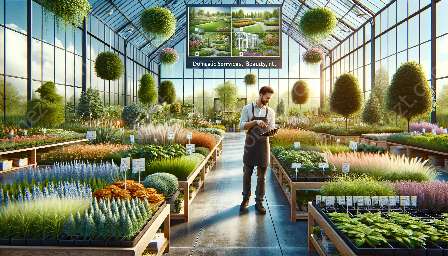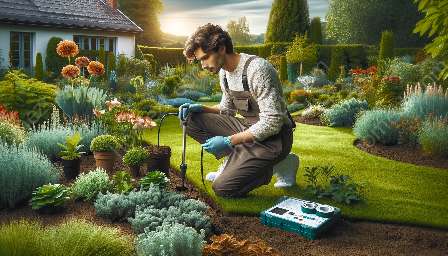Pest control is a crucial aspect of maintaining a safe and beautiful environment, whether it's in the context of landscaping or domestic services. When it comes to creating a thriving outdoor space or ensuring a comfortable living environment, understanding effective pest control methods is essential.
The Role of Pest Control in Landscaping
Landscaping is the art of designing and maintaining outdoor spaces to enhance their aesthetic appeal and functionality. However, pests can pose a significant threat to the health and beauty of landscaped areas. Insects, rodents, and other pests can damage plants, trees, and lawns, leading to the deterioration of the overall landscape.
Effective pest control in landscaping involves the careful management of pests to prevent them from causing harm to plants and other elements of outdoor design. Integrated pest management (IPM) techniques, such as using natural predators and minimizing the use of chemical pesticides, can help maintain a healthy and balanced ecosystem within the landscape.
The Connection Between Pest Control and Domestic Services
Domestic services encompass a wide range of home maintenance and improvement tasks, including cleaning, repairs, and landscaping. Pest control is an integral part of domestic services because it directly impacts the safety and comfort of residential environments.
Common household pests, such as ants, cockroaches, and rodents, can pose health risks and damage property. By incorporating pest control measures into domestic services, homeowners can ensure a clean, pest-free living space for themselves and their families. This can include regular inspections, proper waste management, and sealing off entry points to prevent pest infestations.
Effective Pest Control Methods
Implementing effective pest control methods is essential for preserving the beauty of landscaped areas and creating a safe domestic environment. Some of the most common and environmentally friendly pest control techniques include:
- Biological Controls: Introducing natural predators or parasites to control pest populations without the use of harmful chemicals.
- Physical Barriers: Installing barriers such as screens, fences, and netting to prevent pests from accessing and damaging plants and buildings.
- Cultural Measures: Adopting cultural practices, such as proper irrigation and plant spacing, to reduce pest infestations and promote plant health.
- Chemical Treatments: Using eco-friendly pesticides and insecticides as a last resort to mitigate severe pest infestations while minimizing environmental impact.
- Integrated Pest Management (IPM): Implementing a holistic approach that combines various pest control methods to achieve long-term pest management with minimal ecological disruption.
Creating a Harmonious Environment
By integrating pest control practices into landscaping and domestic services, individuals and businesses can create harmonious environments that are both visually appealing and free from the threat of pests. Whether it's maintaining a lush garden or ensuring a pest-free home, the synergy between pest control, landscaping, and domestic services is essential for promoting a healthy and beautiful living space.





































